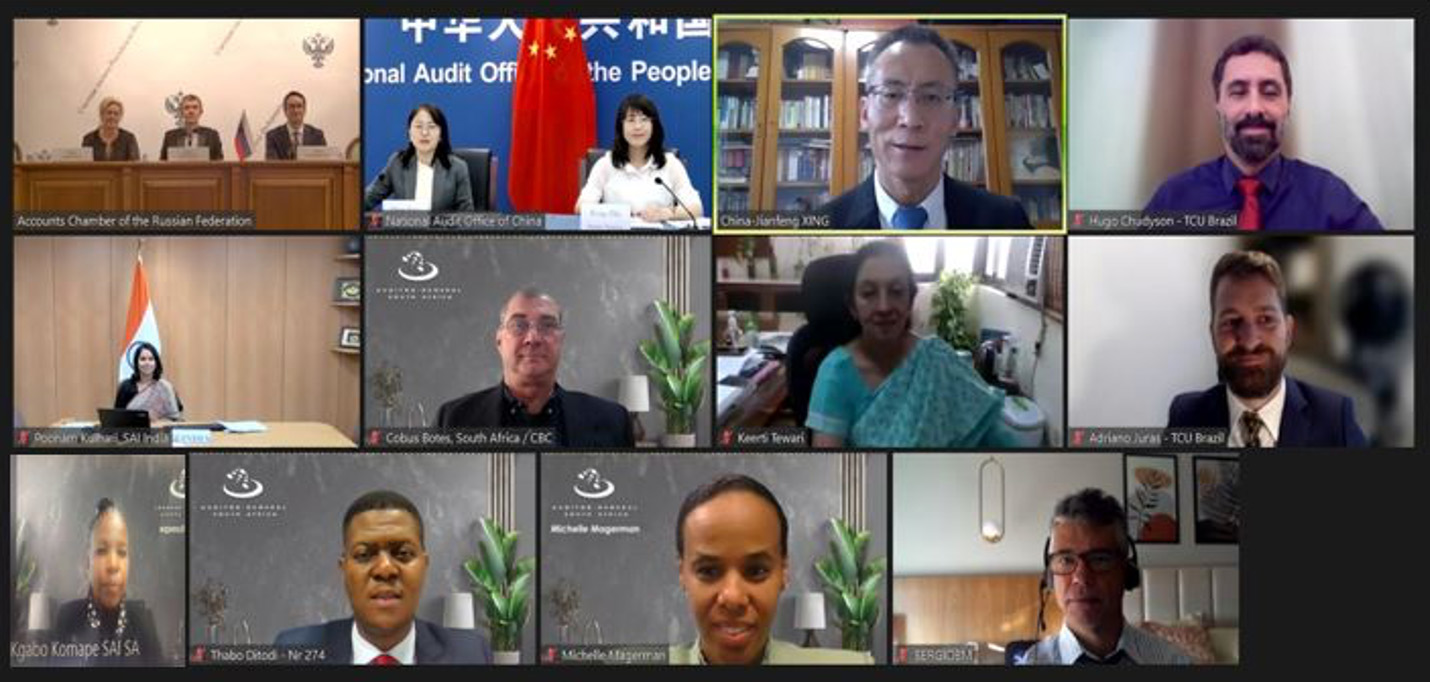
BRICS Sustainable Agriculture and Food Security
On 21 July 2022, representatives of the BRICS Supreme Audit Institutions participated in an online seminar on Sustainable Agriculture and Food Security hosted by the National Audit Office of China.
Low-carbon farming practices are crucial for achieving the UN Sustainable Development Goal № 2 – Zero Hunger. The representative of the Department of External Control for Agriculture and Environment of the Federal Court of Accounts of Brazil Mr. Sergio Braga Machado stressed that while auditing the agricultural sustainability SAI Brazil pays a lot of attention to pesticide use reduction, which is very important for a transition to more environmentally friendly food production. Brazil has already adopted a number of programmes in this area. For instance, farmers who do not use pesticides in their agricultural activities are receiving tax benefits. Pesticide use reduction in Brazil is hampered by overlapping governmental support measures and insufficient technical and financial assistance to farmers. The SAI Brazil representative acknowledged that public institutions are still poor in understanding how to control the use of pesticides.
Pesticide use reduction is one of many measures to achieve sustainable agriculture. Improving the rural population's quality of life is also of a paramount importance. Deputy Head of Inspection of the Department of Audit of Natural Resources and Agriculture of the Accounts Chamber of the Russian Federation Mr. Vladimir Petrenko elaborated on this topic. To him, the federal budget spending has increased the availability of utility infrastructure and decent housing for rural population in Russia. However, a number of persistent breaches during the implementation of the programmes were identified. The conducted audit resulted in recommendations that improved the efficiency of the budget expenditures, the speaker emphasised.
Agriculture is more vulnerable to climate change than any other sector. To reduce the weather-related risks, India provides farmers with insurance options for crops. Director General of the Office of the Comptroller and Auditor General of India Ms. Keerti Tewari shared SAI India’s experience in undertaking performance audits of crop insurance programmes.
Another factor contributing to agricultural sustainability is the rational use of land. Deputy Director of the Department of Agriculture and Rural Affairs Audit of the National Audit Office of the People’s Republic of China Ms. Feng Zhi noted that in order to enhance agricultural productive capacity farmland development plans have to be aligned with other plans, including irrigation and rural power grid upgrade, extra attention should be paid to the maintenance of irrigation systems. The SAI China’s experience also demonstrates that transparent and efficient system of provision subsidies to farmers is also important.
The Office of the Auditor General of South Africa sees inflation and inadequate financial records as significant risks to the sustainable agriculture. SAI South Africa Audit Business Executive responsible for the audit of agriculture-related matters Ms. Kgabo Komape highlighted the need to maintain compliance of state policies with laws and to pay attention to agricultural markets monitoring while auditing.
The BRICS SAIs’ representatives agreed to continue a constructive dialogue and to hold the seminar to exchange experiences on auditing the sustainability of urban mobility in December 2022. The seminar will be hosted by the Accounts Chamber of the Russian Federation.



